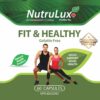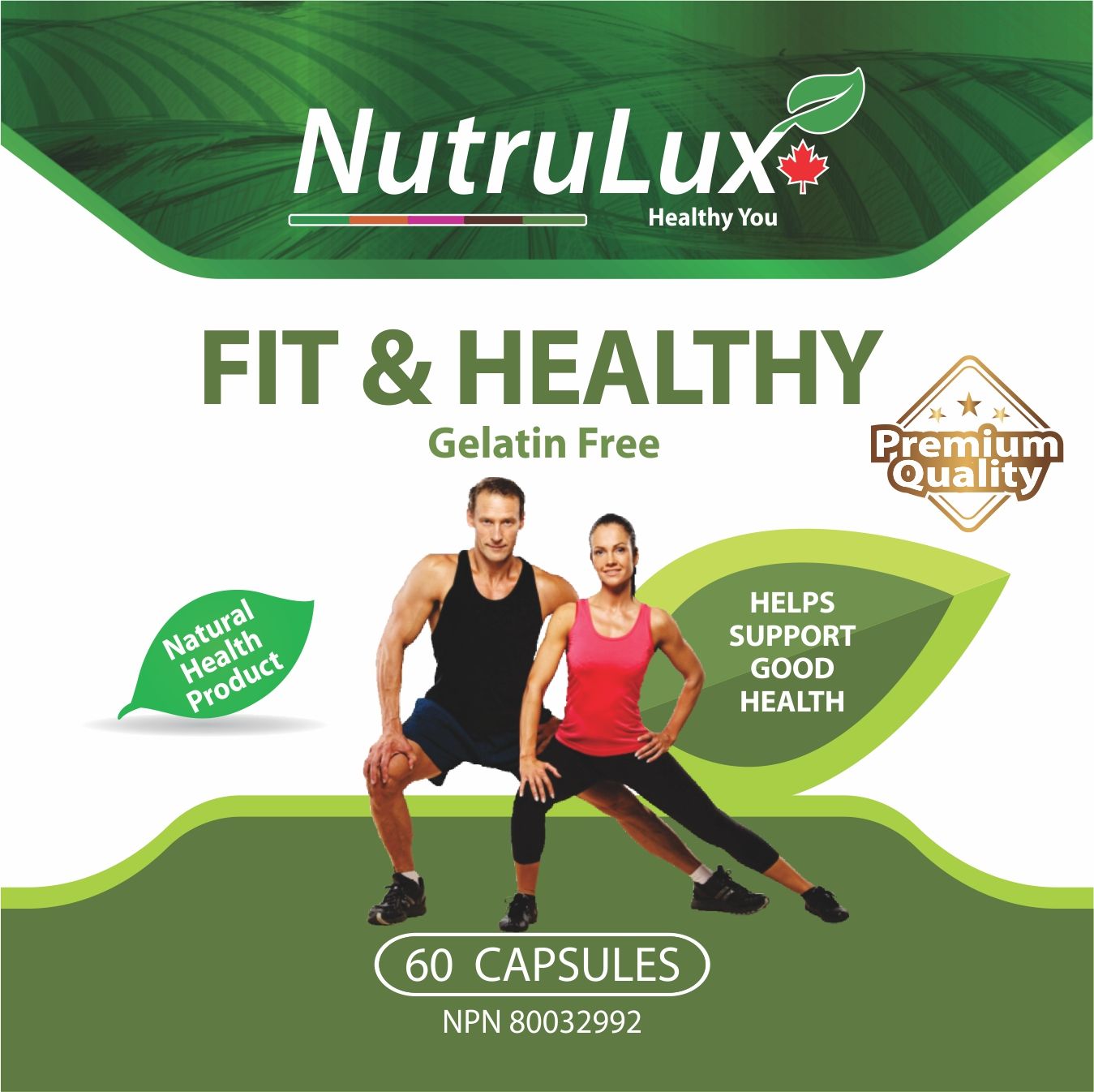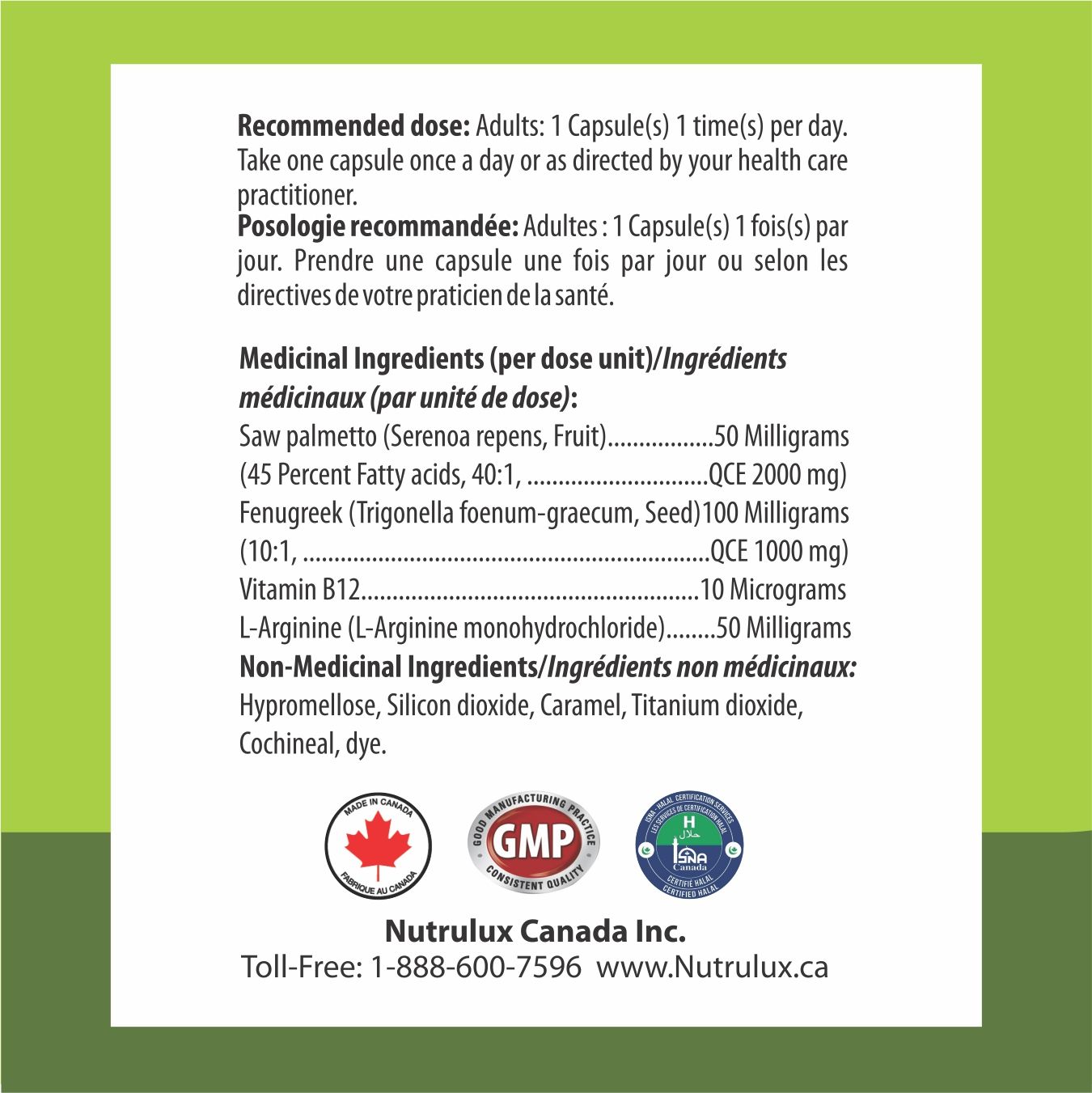
Fit & Healthy ( 10 mg Vitamin B12 ) Halal Gelatin Free Capsules
$19.99
When we exercise, our bodies use three main sources of fuel: carbohydrates, fat, and protein. Carbohydrates, which are stored in the liver and skeletal muscles in the form of glycogen, provide the most efficient source of energy during exercise. Glycogen can be easily metabolized into glucose, which provides immediate energy to fuel the brain, nervous system, and muscles during exercise.
Recommended dose: Adults: 1 Capsule(s) 1 time(s) per day. Take one capsule once a day or as directed by your health care practitioner.

Buy 1 & Get 1 Free
Description
What are stay fit and healthy supplements?
When we exercise, our bodies use three main sources of fuel: carbohydrates, fat, and protein. Carbohydrates, which are stored in the liver and skeletal muscles in the form of glycogen, provide the most efficient source of energy during exercise. Glycogen can be easily metabolized into glucose, which provides immediate energy to fuel the brain, nervous system, and muscles during exercise.
When we exercise, our bodies use three main sources of fuel: carbohydrates, fat, and protein. Carbohydrates, which are stored in the liver and skeletal muscles in the form of glycogen, provide the most efficient source of energy during exercise. Glycogen can be easily metabolized into glucose, which provides immediate energy to fuel the brain, nervous system, and muscles during exercise. The body’s glycogen supply can provide enough fuel for 90–120 minutes of vigorous activity. The depletion of glycogen stores in the body creates the feeling of “hitting a wall” during exercise. As glycogen stores are depleted, the body begins to break down fat to burn for fuel, especially during low- to moderate-intensity activity. In the latest stages of prolonged exercise when glycogen stores are at their lowest, the body begins to break down skeletal muscle protein for glucose production. Physical activity can also induce muscle growth, also known as hypertrophy. Weightlifting and other resistance training exercises are commonly used to increase skeletal muscle mass, but cardiovascular exercise like running can also spur muscle growth. Physical activity causes structural damage to muscle fibers, especially when muscles are challenged with multiple repetitions of heavy weights. The body’s repair response involves fusing broken muscle fibers together to form new muscle protein strands, which in turn increases muscle size. A variety of factors influence how rapidly muscles grow with exercise, including the amount of weight lifted and the number of repetitions.
Vitamin D
It’s essential for bone and muscle health among other things, and the best way to get it is by exposure to sunlight. However, government advice in the UK is that all adults take a 10microgram vitamin D supplement daily between October and March, because that’s when the lack of sunshine at this latitude makes it hard to get enough vitamin D simply by heading outside. During the COVID-19 pandemic, the advice has been adjusted to recommend taking a supplement all year round, because many people are spending less time outside.
Protein supplements
The most common supplement you’ll find in gym bags, protein helps your muscles to repair and rebuild after a hard workout. Generally, whey protein is used to help people hit a protein target of 1.4-2g protein per kilogram of bodyweight per day when training hard or looking to build muscle, though if you can hit this goal through your diet that’s the better bet owing to the additional nutrients you get from food protein sources. Another type of protein supplement is casein, and there are also vegan alternatives that use plant protein sources like peas, brown rice and soya.
Creatine
Creatine is used by your muscles to produce energy, and helps you to exercise for longer and recover faster. Creatine monohydrate is the cheapest form of creatine supplement you can buy and there’s no need to opt for anything pricier in terms of effectiveness. Be aware, however, that creatine has been shown to work only for some people in studies, with some suggesting it’s effective for just 50% of people.
Beetroot juice
This source of dietary nitrates can reduce the oxygen cost of running, or other endurance activities. There’s also some evidence that it can improve power and performance at speed as well, so it’s also become popular with professional football and rugby players. Concentrated shots are now available, so you don’t have to chug full glasses of the stuff.
Caffeine
It will come as no surprise to those who can’t get through the day without drinking a couple of coffees that caffeine can reduce your perception of fatigue. This makes it a useful supplement for sportspeople, whether you’re looking to blast through a short workout and need a pick-me-up beforehand or are trying to hold on at the end of a long endurance event like a marathon. For sporting performance, the suggested dose of caffeine is 3mg per kilo of body mass, and you should take it 30 to 45 minutes before you want the effect to kick in. Not everyone reacts in the same way to caffeine, however: for some people it can cause jitters or GI distress, so it’s one to introduce carefully.
Carbohydrates
Carbs are your body’s main source of fuel when working hard, so ensuring you have enough of them is vital for performing at your best. If your exercise is to last less than 90 minutes you can usually get by with the carbs stored in your body, especially if your carb-load beforehand, but during longer bouts of activity it’s worth topping up your carb levels as you go. There are many carb supplements that can help you achieve this, such as gels, bars, and drinks, and it’s worth experimenting with different types to find ones that you like and that don’t upset your stomach.
Electrolytes
Water is naturally a key ally in your efforts to stay hydrated, but electrolytes also play a vital role, especially when exercising hard because you will lose a lot of sodium in your sweat. If you’re exercising for over an hour, especially in hot environments, it can be worth using an electrolyte supplement to top up your sodium levels in particular. Many sports products like energy drinks and gels come with added electrolytes, or you can get a tablet or sachet to make a particularly electrolyte-rich drink.
Collagen
One of the rising stars of the supplement world, collagen is popping up in all sorts of products with the promise of maintaining your bone, joint and skin health, as well as managing pain and stiffness associated with osteoarthritis. Dietitian said the early research into the benefits of collagen supplements is encouraging, but you can also get what you need from your diet.
Fat Burners
Fat burners are supplements designed to boost your metabolism and so reduce fat absorption, pushing your body to burn fat as fuel rather than storing it away. While they do the job they claim to, in general weight management requires a more all-encompassing approach in terms of diet and exercise, and fat burners are not really designed to be used for long periods. There are many different ingredients used in fat burners to produce the desired effect, including caffeine, salts and proteins, and before you start using them you should discuss them with a healthcare professional.
Beta-Alanine
Beta-alanine is a supplement used by footballers, cyclists and other sports pros looking for marginal gains, and it can help to delay fatigue and the build-up of lactic acid during hard efforts like tough climbs on the bike or the repeated sprints of a football match. You have to load with beta-alanine to get the benefits, taking around 3-6g a day for at least four weeks.
























